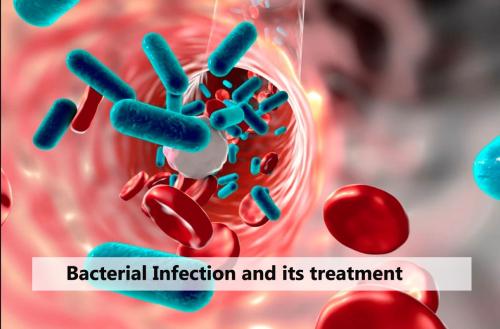How Antibiotics and diarrhea are related to each other?

Antibiotics and diarrhea have a close relationship. Different types of bacterial infections treat antibiotic medicines. There are different kinds of categories of antibiotics.
A person suffering from diarrhea experiences loose, watery stools. It can be three or more times a day. It is a side effect of some antibiotics.
In most cases, antibiotic-associated diarrhea is mild and does not need treatment. Stopping the antibiotic usually resolves diarrhea within a few days. In more severe cases, antibiotics must be stopped or switched occasionally.
There is a balance of healthy bacteria in our body which maintains our gut health and digestion. They provide us with a sense of well-being on a physical and mental level.
Bacteria that are healthy multiply faster than bacteria that are unhealthy. These bacteria help to get nutrients from food processing. Healthy bacteria in our bodies also protect us from illness or bacterial infection.
Antibacterial medications (antibiotics) cause diarrhea. Your digestive tract is disrupted by antibiotics because they disrupt the balance between healthy and bad bacteria. Inflammation of your colon can be caused by the long-term use of antibiotics.
In the case of bacterial infections, your doctor will prescribe antibiotics. Antibiotics are needed to treat the infection. Here are some tips for preventing diarrhea and other stomach problems.
Probiotics
Yogurt and other foods contain probiotics, which may help restore gut bacteria balance. It's unclear, however, whether over-the-counter probiotics can help reduce the symptoms of antibiotic-associated diarrhea. Lactobacillus rhamnosus-based and saccharomyces boulardii-based probiotics are usually the most effective for treating diarrhea.
Probiotics are expected to have a number of advantages, including ease of administration, cost effectiveness, and relative lack of side effects.
Avoid Dairy Products
Diarrhea can be caused by dairy products. While you are taking antibiotics, your digestive tract may become extremely sensitive to dairy products. While you are on antibiotics, temporarily avoid butter, milk, cheese, and ice cream.
Get enough fluids
Water or electrolytes can help counter mild fluid loss caused by diarrhea. If you have severe diarrhea, drink fluids with sugar, salt, and water. Low-sugar fruit juices or broths are preferred. Don't drink sugary or high-caffeine beverages, such as tea, coffee, and colas. As a result, you may have worse symptoms. If your child has diarrhea or is an infant, ask your doctor if they can take Pedialyte.
Consume Fiber Rich Foods
If you have diarrhea after taking antibiotics then increase the consumption of fiber foods in your diet.
Anti-diarrheal medications.
If you suffer from mild antibiotic-associated diarrhea, your doctor may prescribe anti-diarrheal medications. Anti-diarrheal medications can cause serious side effects and interfere with the body's ability to eliminate toxins. If you have C. difficile, these medications should be avoided.
Avoid Overuse
Antibiotics can treat bacterial infections, but they won't treat viral infections like colds and flu. Antibiotics can negatively affect your digestive health and cause other problems if you overuse them.
Always consult with the doctor before taking or buying antibiotics from any online or offline store.
Advertise on APSense
This advertising space is available.
Post Your Ad Here
Post Your Ad Here
Comments